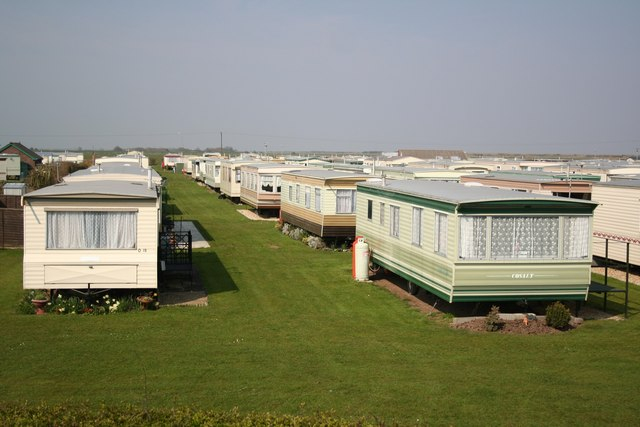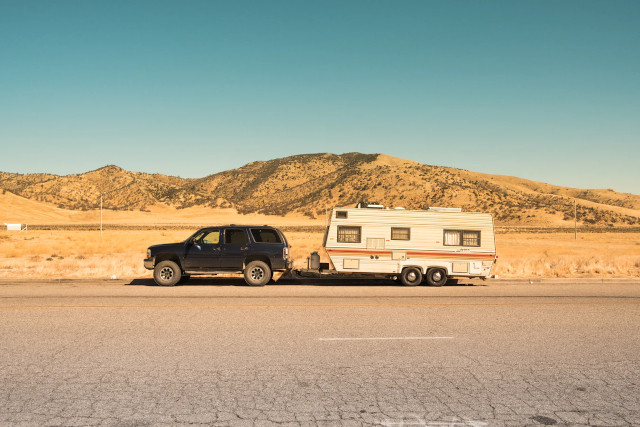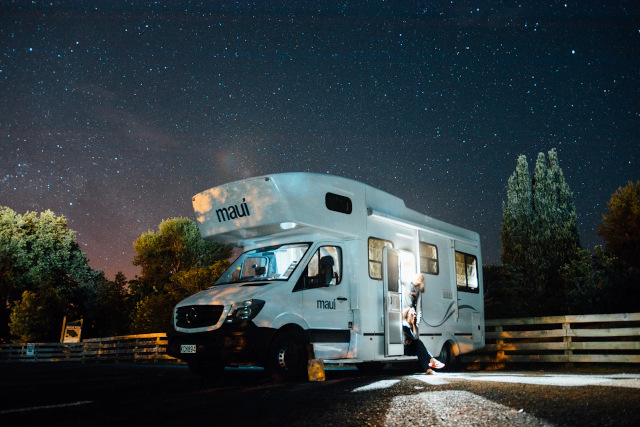Everything you need to know before buying a caravan
Buying your first caravan is an exciting time. Many caravanners get hooked right from the start, liberated by the freedom to take their holiday in whatever direction the open road points them.
However, making that investment for the first time can be a little nerve-racking, especially if you’ve saved up for a premium model. The last thing you need is to complete a purchase only to find that your car isn’t powerful enough to tow the model you’ve bought or that your caravan insurance will cost more than you’ve budgeted for.
Thankfully, we’ve put together an expert guide below that highlights all the questions you should be asking before putting down that deposit so that nothing detracts from that triumphant moment when you finally get the keys.
What type of caravan should I buy?
Before you start comparing models, you’ll need to know what kind of caravan will fit your needs the best. There are three main types of caravan that you can purchase:
Static caravans
Touring caravans
Motorhomes
Static caravans

| Pros: | Cons: |
|---|---|
|
|
A static caravan is one that remains situated on a pitch. It isn’t towable, hence the name.
Because they don’t need to be mobile, static caravans are typically a lot larger than mobile models. This means they have more space for facilities like showers, ovens and lounge areas, making for a comfortable holiday experience. And since you won’t be lugging a heavy caravan around the country with your car, there are fewer fuel costs to worry about, too.
On the other hand, more room means a bigger price tag. Static caravans are typically more expensive than their mobile counterparts; a mid-level model will set you back about £30,000. They also garner year-round pitching and maintenance costs (typically around £3,000 per annum), which — if you only holiday once or twice a year — can be difficult to justify.
If you are considering a static caravan, make sure you do plenty of research into the site where it’ll reside. Get a list of fees so you can get an idea of what you’ll be paying annually on top of that starting cost of purchasing the caravan itself.
Touring caravans

| Pros: | Cons: |
|---|---|
|
|
Touring caravans are the smaller, nimbler cousins of static caravans. What they lack in space, they make up for in mobility. As an owner of a touring caravan, you’ll find there are few pleasures greater than booking a pitch last-minute and taking off for the weekend.
Plus, their compact size means starting prices for touring caravans are often surprisingly affordable. Budget models can be bought for less than £10,000 new, and even less pre-owned.
However, the portability of touring caravans is as much their undoing as it is their appeal. Before you can use a touring caravan, you’ll need a car that can handle the job: if you don’t have one already, that’s a big expense to add to the purchase price.
New caravaners should also know that it’s quite tricky to master towing a caravan, so you’ll need to be sure you’re willing to invest the time to reap the rewards. It also requires a lot of fuel: if you’re travelling across the country, it could cost you hundreds of pounds in petrol alone.
Motorhomes

Pros: | Cons: |
|---|---|
|
|
Motorhomes are basically what you get when you put a car and a touring caravan together. They are the pinnacle of holiday convenience: just hop in the driver’s seat and go wherever you want to.
But when it comes to price, motorhomes are steeper both static and touring caravans. For a new motorhome on the middle tier, asking prices sit at around the £50,000 mark, so you’d better start saving.
There are a few other setbacks that come with combining an engine with a house. Because motorhomes are classed as vehicles, you’re legally required to insure it in the same way you would a car or a van, which you can do with a motorhome insurance policy. There are also substantial fuel costs to consider: motorhomes guzzle fuel far more quickly than most cars, which might make you think twice before an impromptu road trip across Europe.
Finally, it goes without saying that something as mobile as a car will have some space shortages. However, if freedom of movement is what you prize above all else, you really can’t do better than a motorhome.
How much does a caravan cost?
While the market fluctuates constantly depending on the season, below is an outline of the kind of prices you can expect to pay for new and used caravans today.
| Type of caravan | New | Used | ||
|---|---|---|---|---|
| Bottom-end Price | High-end Price | Bottom-end Price | High-end Price | |
| Static Caravan | £15,000 | £100,000 | £3,000 | £80,000 |
| Touring Caravan | £10,000 | £60,000 | £1,000 | £40,000 |
| Motorhome | £25,000 | £300,000 | £4,000 | £200,000 |
Can my car tow a caravan?
If you decide that a touring caravan is best for you, you’ll need to make sure that you have a car capable of towing it — and if you’ve never towed before, you’re unlikely to know if it can.
How to find out how much your car can tow
Here’s how to calculate your towing capacity:
Find out your car’s ‘curb weight’ — Open your car handbook. You’ll need to look for something called ‘curb weight’ (or ‘kerb weight’). This is basically how much your car weighs without cargo and with a full tank of petrol.
Get the 85% figure — Multiply the curb weight by 0.85 to get the ‘85% figure’ you’ll use in the next step.
Compare with your caravan’s MTPLM — Each caravan has a Maximum Technically Permissable Laden Mass (MTPLM) figure, which you should receive along with your quote. If not, ask for it. If the MTPLM is less than or equal to the 85% figure you calculated based on your car’s curb weight, it should be safe to tow.
Note: Though you can legally tow up to 100% of your car’s curb weight, it is highly discouraged, especially for beginners.
New vs used caravans
Once you’ve determined which type of caravan is best for you, you’re ready to start browsing the market. Naturally, brand-new caravans will cost more — sometimes a lot more — than their pre-owned counterparts, so if you’re on a budget, used is often the best way to go.
However, used caravans naturally come with a bit of wear and tear. If you’re not careful, you could end up spending more on repairs than the caravan’s actual value.
Second-hand caravans: what to look out for
Here are some things you should look out for if you choose to buy a second-hand caravan:
Tyres — Tyres can be expensive to replace, and older caravans have likely done plenty of miles. Check tyres carefully for cracks, scuffs and — if you have a jack handy — flat spots. Tyres more than five years old will need replacing, which is particularly pricey on a twin-axle. If you spot them before agreeing on a deal, you can have them repaired without it coming out of your pocket.
Service history — The more documentation you have, the less likely you are to be caught off guard by any blips in a caravan’s service history. Ask for receipts and evidence of servicing before even considering making an offer.
Vehicle Identification Number— Caravans manufactured after 1992 are recorded on the Caravan Registration & Identification Scheme (CRiS) database with a Vehicle Identification Number (VIN). A caravan’s registered keeper should have this number with them, so if they can’t provide it, there’s a chance it could be stolen.
Windows — Make sure window catches are working correctly before you buy. If not, it could invalidate your caravan insurance policy down the line.
Finding storage for your caravan
It’s so exciting to think about all the places you’re going to take your new caravan that you’d be forgiven for overlooking one significant consideration: where are you going to keep it when you’re not using it?
If you’re choosing a touring caravan or a motorhome, there are a few options you can choose from:
Home storage — Keeping your caravan on the driveway or in a garage
Seasonal pitching — Leave your caravan on a campsite for a portion of the year.
Storage facilities — A secure location where you can keep your caravan year-round
Unregistered locations — Areas such as a farmer’s field or a business premises, stored with permission from the landowner.
Each option comes with different associated costs and benefits. To find out more, read our caravan storage guide.
Insuring your caravan
The last step you should take before making an offer on a caravan is assessing whether you can properly ensure it.
Ask yourself the following questions:
- What type of insurance do I need? — Motorhomes require a different type of insurance policy than static and touring caravans because they’re classed as motor vehicles. Make sure you get quotes for the kind of insurance that’s specifically designed for the type of caravan you want to buy.
- What do I want to be covered? — While you can take out basic caravan insurance policies which will cover things like fire and theft, it’s often cost-effective to include some add-ons, too. Things like contents insurance can save you significant sums of money in the event that anything is stolen from your caravan while you’re not using it. You can also cover things like awnings in case they’re damaged by adverse weather conditions.
- Which insurer should I choose? —Caravan insurance is a niche so it should to be handled by a specialist. Safeguard has over 30 years experience insuring caravans and motorhomes, helping people get suitable deals on their premiums.
Learn more about Safeguard caravan insurance and join thousands of other happy customers today.
